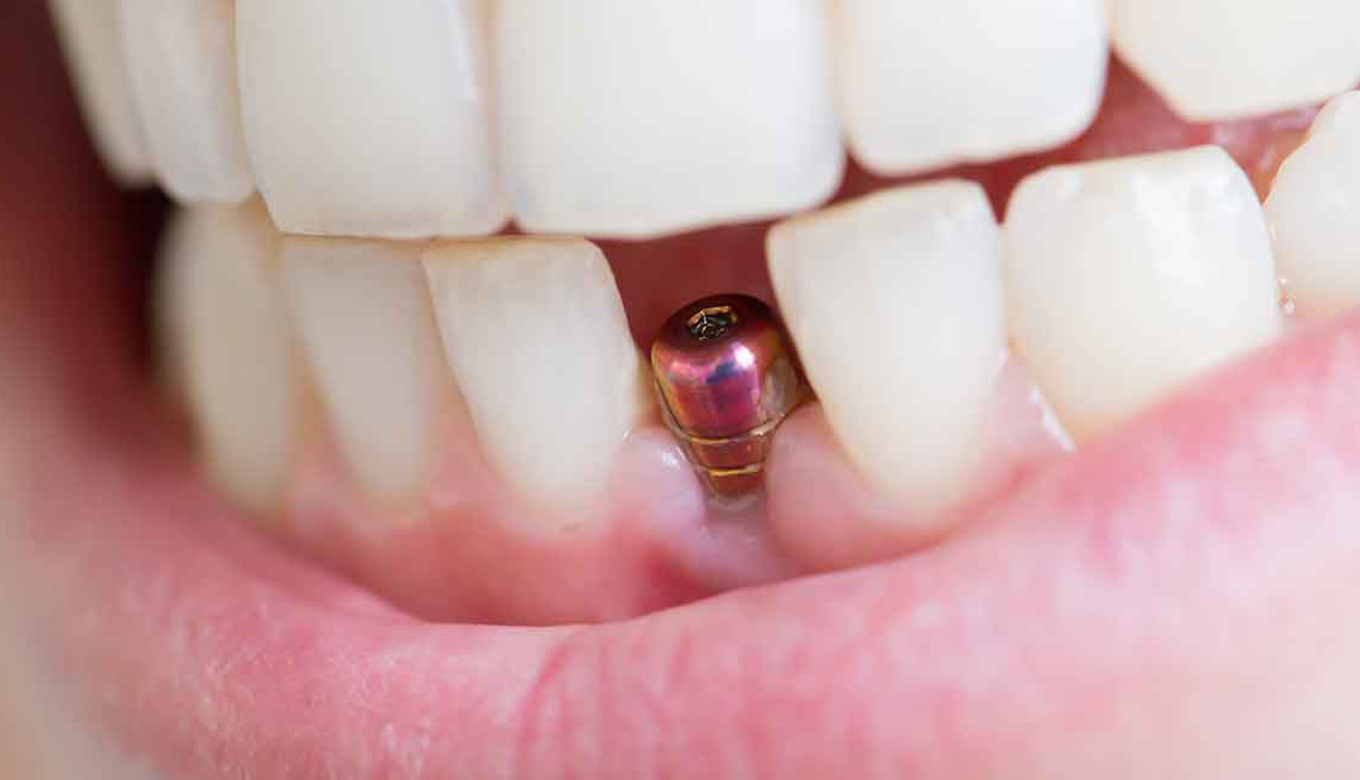Is it possible to fix implant teeth for a person with gum disease?

Do you have gum disease? Do you need to have dental implants? If you have a gum disease, it is necessary to be treated. This can lead to gum recession along with bone loss which can reduce chances of having dental implants. With dental implants being the best choice for tooth replacement, they help to preserve tooth supporting bone and prevent further deterioration.
With aging, most people lose their teeth. But teeth normally last for a long time. Periodontal disease (‘peri’ means around and ‘odont’ means tooth) is caused by bacteria which destroys the tissues around the tooth. It is not noticeable by lay people but only a dentist can tell you if you have periodontal disease. If this disease is left untreated, it can progress from gingivitis to periodontitis. Periodontal disease results in bone loss around the teeth. Once the bone tissue is lost the gum tissues tend to detach and form small pockets that house the bacteria. These niches are impossible to brush or floss. As the periodontal disease progresses, the bone loss will lead to tooth loss. Most often, this applies to families with periodontal disease running in their genes. But the good news is, periodontal disease can be controlled even if it is at an advanced stage.
How to Prevent Periodontal Disease?
As we all know by now,periodontal disease also known as gum disease which occurs when the bacteria in the plaque which is a colorless and sticky film that is formed in the mouth increases between the teeth and the gums. As the bacteria grows the gums become inflamed. If you are a candidate for dental implant/s, then the gum disease needs to be treated before it manifests in bone loss and gum recession. Otherwise the chances of having dental implants will be reduced. If the patient has severe bone loss, a bone graft procedure will be done by the periodontist. If the gum disease is too advanced, then other forms of treatment will have to be discussed such as dentures.
The signs of gum disease range over symptoms such as inflamed gums, bad breath, receding gums, gaps between gums and teeth and bleeding gums. The symptoms also evolve over sensitivity, loose teeth and periodontal abscess. The periodontist will advise the patient on oral hygiene after which there will be removal of plaque and/or calcified deposits. The professional care will extend to cleaning techniques like root planning, scaling and debridement including application of antibiotics or antimicrobial products. In severe cases, there may be surgical procedures to support various dental problems.
Periodontal disease also affects overall health with serious conditions. Professional healthcare specialists will offer help and suggest advisory care that will reduce periodontal inflammation to decrease systemic inflammation. According to the dentist recommendation, the patient should follow excellent oral hygiene to prevent periodontal disease with careful brushing, flossing, tongue cleaning, professional cleanings and regular visits to the dentist. The instruments and techniques used by the dentist will ensure reaching areas that brushing and flossing cannot. It is necessary to evaluate the gum tissues and also assess the health of the tooth-supporting bone with dental X-rays.
Leave a Reply